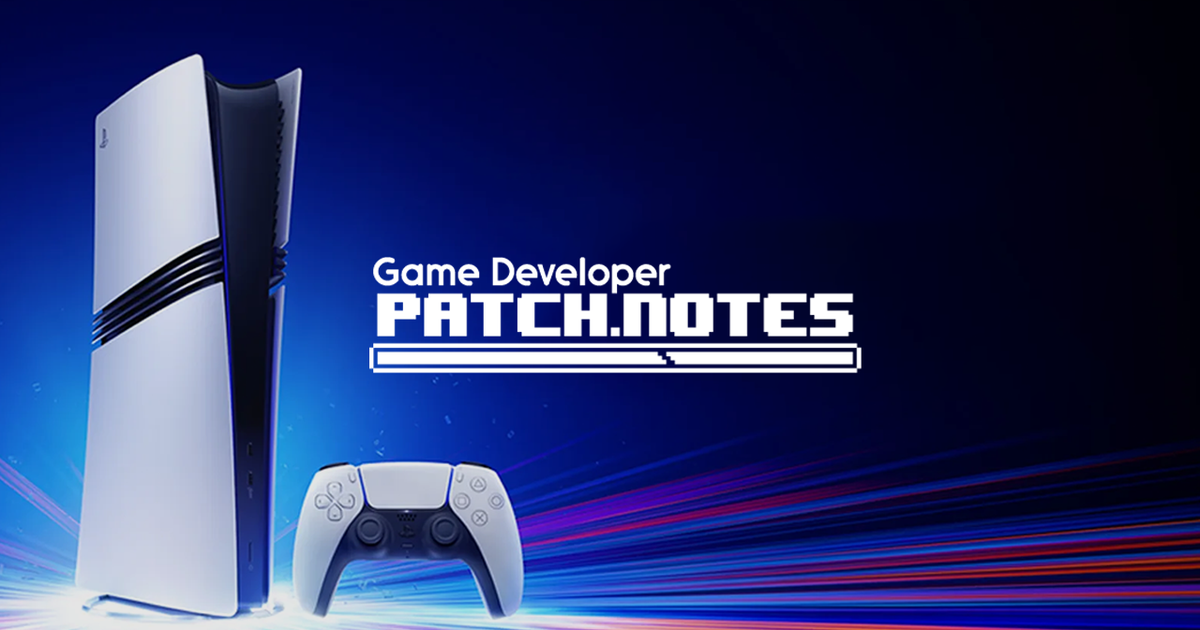Tech
Patch Notes #3: The game industry is becoming an innovation wasteland

“The most visually impressive way to play games on PlayStation.” That’s how Sony is pitching the PlayStation 5 Pro, a mid-cycle upgrade that will cost a staggering $700 and as evidenced during a tonally odd technical presentation, will largely enable owners to gawp at upscaled versions of titles like The Last of Us Part II Remastered, Gran Turismo 7, and Horizon Forbidden West.
It’s been a few days since the console was unveiled by PlayStation lead architect Mark Cerny, who was given less than 10 minutes to convince consumers to part ways with an eye-watering wad of cash. After spending a good chunk of that time explaining why the base PlayStation 5 is still rather brilliant (see, there’s no need to be jealous if you can’t afford the upgrade), Cerny waxed lyrical about the Pro’s prestige features.
A turbocharged CPU with 45 percent faster rendering for FPS-drenched gameplay. Advanced ray tracing that apparently makes reflections and refractions look bloody marvelous. AI-driven upscaling that sharpens images by adding detail you wouldn’t believe. Appealing? That depends on your disposition. Rampant technophiles who crave the best of the best won’t need convincing, but for everyone else this is an all too familiar pitch—and that begs the question: who actually cares?
Who cares about seemingly imperceptible marginal gains when Sony hasn’t even delivered on the promise of the original PlayStation 5? Where is the software? Where are the raft of PlayStation 5 exclusives that go hell for leather and absolutely floor it? It’s concerning that Sony is still relying on PlayStation 4 compatible releases to showcase its shiny new box. Especially when that box doesn’t even feature a disc drive (backwards compatibility be damned). This isn’t innovation. It’s stagnation. If new hardware is a statement, this is Sony proclaiming it has run out of ideas.
Debuting the “most powerful console ever” (Cerny’s words, not mine) is only a win if you have the software to showcase its ultimate potential. The PlayStation 5 is only four years old but sales have already started to slide away. The PlayStation 5 Pro feels like a wishful attempt to give the console a second wind before it has even begun to soar. During Gamescom, I spoke with a few execs who said the industry has a concerning tendency to look to the past for inspiration rather than attempt something fresh.
The PS5 Pro is precisely that. Sony is circling back to the last console generation and asking for a do-over, but without any real justification. The company just laid off over 1,100 workers at major studios like Naughty Dog, Insomniac, Guerrilla Games, and Bungie. Recent first-party release, Concord, crashed and burned in the space of two weeks. But hey, I’m sure you’ll eventually get a solid return if you slap down $700 on a PS5 Pro.
Can the PlayStation 5 Pro unearth riches for Sony? // Image via Team Asobi | Captured by Game Developer
I nabbed a PlayStation 5 at launch in 2020. Since then, I’ve only played two first-party titles that feel genuinely fresh. Astro’s Playroom and Astro Bot. The former is a truly wonderful DualSense controller showcase transposed onto a bitesized 3D platformer. The latter is that vision fully-realized. A joyous, whimsical experience from Team Asobi that proves Sony has the nous to compete with the very best in the genre.
It doesn’t reinvent the wheel, but in championing mechanical tomfoolery and tactile silliness above all else, Astro Bot starts to feel incredibly unique by sheer virtue of putting player experience first. It’s like jumping into a ball pit as a kid. It’s really not that deep, but that doesn’t mean it isn’t absolutely superb.
The irony here, is that Astro Bot is also depressingly reliant on nostalgia. In-game, you rescue a variety of bots, many of which come dressed as your favorite PlayStation characters from yesteryear. There’s Jak & Daxter. PaRappa the Rapper. Those pesky primates from Ape Escape. The gang is all here, but in pushing those beloved characters front and centre, Sony is also begging players to ask: what happened?
Why have so many of them been consigned to fleeting cameos in what’s basically a $60 advert for PlayStation (albeit, a very good one)? Why have the studios who birthed those beloved mascots been wrecked by layoffs or shuttered completely? There’s no doubting PlayStation has a rich history of innovation. Astro Bot makes that abundantly clear. It also shows there’s still room for growth. Not only room, but a desperate, feverish need.
You can only rely on nostalgia for so long. Eventually, you have to take risks and dare to imagine what comes next. Safe is diminishing returns, dying franchises, and spending billions in a desperate attempt to follow trends instead of defining them. The game industry needs its biggest players to take bold leaps. Right now there is only repetition.
Status Report: The headlines that matter
-
Exclusive: Unity is killing its controversial Runtime Fee // Unity became public enemy numero uno last year after introducing a controversial ‘Runtime Fee’ that essentially amounted to a per install tariff on developers using the engine. Now, almost a year later (and a few execs lighter) the company has scrapped the policy and promised to never do anything like that ever again. Forgive and forget? Your call.
-
Report: Microsoft is laying off another 650 game workers // Another week, another massive gut punch for anybody who values their livelihood. Multiple outlets reported that Microsoft is laying off 650 workers across its video game division in a round of cuts that will largely impact staff providing ‘corporate and supporting functions.’ In a leaked email, Xbox boss Phil Spencer said the redundancies will help deliver “long term success.” I feel like we’ve heard that one before.
-
All of Annapurna Interactive has resigned // In a seismic turn of events, indie publisher Annapurna Interactive has been thrown into chaos after the entire team resigned in unison. Bloomberg reports that a failed attempt to spin the division out into an independent entity sparked the wave of resignations. It’s currently unclear what that means for those developers signed with the publisher.
Feature Creep: Originals and interviews for the discerning reader
-
Atari CEO Wade Rosen says the company is done being a ‘fast follower’ // What a difference a few years makes. When Atari CEO Wade Rosen took the helm in 2021, the company was in a tough spot. Fluctuating financial and hardware woes suggested the company’s core competency was sowing disarray. During a recent chat, Rosen admitted the firm lacked direction at that point, but said the company is no longer content to simply follow the masses and hope for the best.
-
Godot founders had desperately hoped Unity wouldn’t ‘blow up’ // Open goals don’t come around very often, but when they do you’d better not miss. Open source engine Godot was a huge beneficiary when Unity dropped the ball last year (that Runtime Fee keeps coming up today, eh?), but company founders Rémi Verschelde and Juan Linietsky recently told us that presented a colossal challenge.









